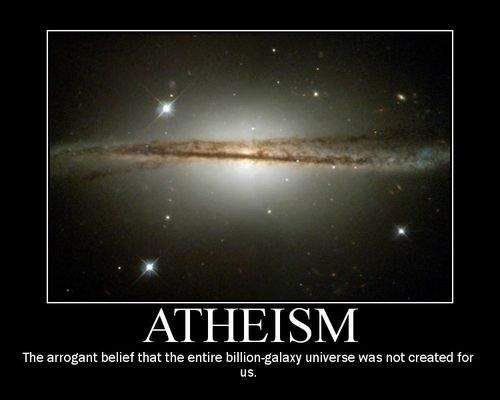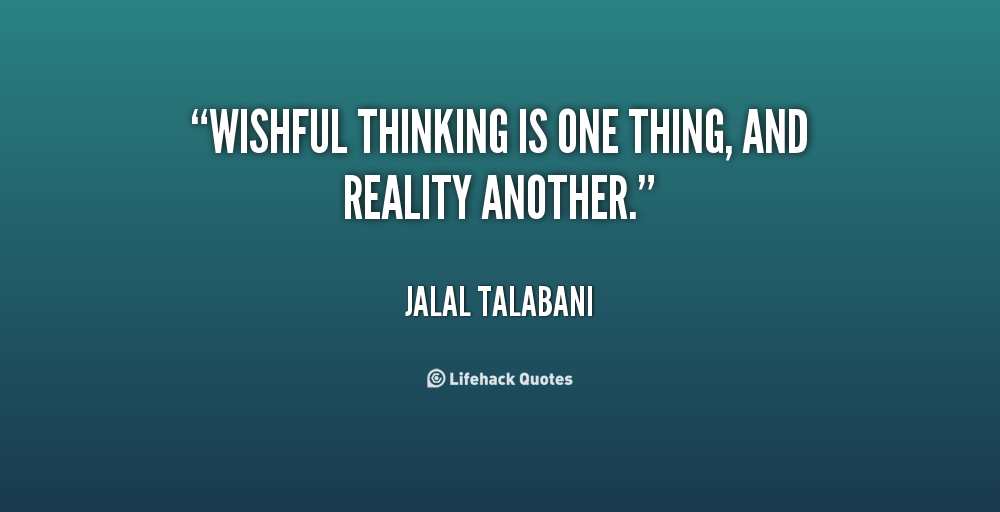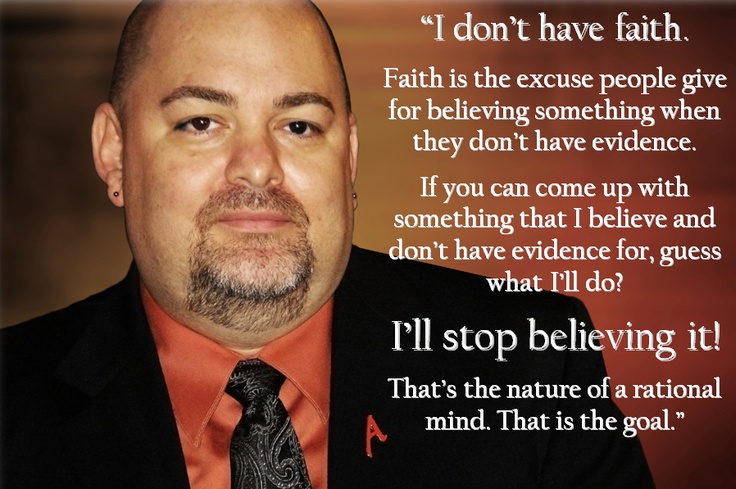“The Word Is in Christ unto Salvation”
Alma 32–35
LDS manual: here
Purpose
To encourage readers not to engage in wishful thinking and emotional reasoning
Reading
What is faith?
That was the question posed by my Stake President. He called me into his office one Sunday. I think he’d heard that I’d been having concerns. It was a great meeting! I was finally able to tell a church leader — to his face — that I thought the church’s claims lacked evidence.
“But that’s why there’s faith,” he said. “What do you think faith is?”
I knew I had an answer — I’d thought about this just a couple of days before — but I didn’t say it.
He pressed. “What is faith? I’m asking you.”
Well, he was asking. So I hit him with it.
I said, “Faith is the willingness to suspend critical reasoning facilities… in the service of a belief for which there’s no adequate evidence.”
He stopped for a second. Then, to my surprise, he sort of agreed.
The discussion went on, but I think that discussion said everything about faith from a Mormon and an ex-Mormon perspective.
(Incidentally, I wrote a blog post shortly after the incident, and you can read it here. I didn’t go back and re-read it before I wrote this. Did I remember it accurately? Did I embellish? We all know memory is constructed. Here’s a chance to see how memory changes.)
In this lesson, Alma talks about faith. In religion, faith is considered a wonderful virtue that makes all things possible. I think faith is a terrible reason to believe something, and we need to stop thinking that faith is some kind of virtue.
Main ideas for this lesson
Preying upon the poor
As our story begins, Alma comes across the people who were kicked out of their synagogues for being poor.
Alma 32:5 And they came unto Alma; and the one who was the foremost among them said unto him: Behold, what shall these my brethren do, for they are despised of all men because of their poverty, yea, and more especially by our priests; for they have cast us out of our synagogues which we have labored abundantly to build with our own hands; and they have cast us out because of our eexceeding poverty; and we have no place to worship our God; and behold, what shall we do?
32:6 And now when Alma heard this, he turned him about, his face immediately towards him, and he beheld with great joy; for he beheld that their afflictions had truly humbled them and that they were in a preparation to hear the word.
Humility
Ask: If you went on a mission for the LDS Church, which neighbourhoods were your most successful: rich ones or poor ones?
I don’t think anyone sees a great deal of success in areas where people are comfortable. That’s mirrored in this passage.
Alma 32:12 I say unto you, it is well that ye are cast out of your synagogues, that ye may be humble, and that ye may learn wisdom; for it is necessary that ye should learn wisdom; for it is because that ye are cast out, that ye are despised of your brethren because of your exceeding poverty, that ye are brought to a lowliness of heart; for ye are necessarily brought to be humble.
32:13 And now, because ye are compelled to be humble blessed are ye; for a man sometimes, if he is compelled to be humble, seeketh repentance; and now surely, whosoever repenteth shall find mercy; and he that findeth mercy and endureth to the end the same shall be saved.
32:14 And now, as I said unto you, that because ye were compelled to be humble ye were blessed, do ye not suppose that they are more blessed who truly humble themselves because of the word?
The LDS Gospel Doctrine manual asks:
• Why was it a blessing to these Zoramites that they had been compelled to be humble? (See Alma 32:12–13.) Why is it better to humble ourselves than to be compelled to be humble? (See Alma 32:14–16.) How can the word of God lead us to humble ourselves?
Ask: Why does the church promote humility?
Humility is a good thing generally. There’s an awful lot we don’t know, and we need to acknowledge as much. Otherwise, we won’t be open to new knowledge, and who couldn’t use a little of that?
This is precisely why I find it so galling that there’s a church whose leaders claim to know the mind and will of God. It’s the opposite of humility.
Atheists, by contrast, don’t think the universe was created for humans, and don’t think their moral system was handed to them by a god.

Ask: What’s the function of these verses? Why does a church that thinks it has God’s mobile number demand humility from its members?
A person with intellectual and emotional independence can ask questions and expect reasonable answers. That’s a disaster for a church that has none. But if you can inculcate a kind of intellectual docility in your members, you can use that as a fallback. “Have humility” is like saying “Have faith”. They’re an escape hatch for when the questions get too pointy. Sure, it’s okay not to know stuff, but if a church claims to have a prophet who reveals things to his servants the prophets, then why would there be gaps in knowledge? Is it that the Lord hasn’t revealed that yet, or is it a plot hole that will never get filled? It sure looks like the second. And why would God work to build a church with so many problems?
Ask: Why do well-off people not accept the gospel?
People who have enough don’t seem to need religion. The church pushes this as an indictment of rich people, but it’s actually a reflection on the church. In economic terms, religion is an inferior good. Just like you stop buying the generic ice cream when you can afford better, religion seems to work well enough until you get a better set of intellectual tools.
Christianity doesn’t have much to offer someone who’s doing well. But it has a lot to offer someone who’s at the end of their rope — a clean slate on sins and misdeeds, a second chance in life, promises of becoming a new person. (Too bad the promises are empty.)
If I were a church, I’d be in the business of promoting misery. Making people’s lives fall apart is a sure way to encourage dependence.
What is faith?
I often discuss faith with believers. But of course you need to define what faith is. I’ve given my definition above, but a more concise definition is this:
Faith is belief without evidence.
Aron Ra elaborates.
Faith requires that we literally make-believe, that we presume, presuppose, and pretend; that we ignore what we really do see, and imagine something is there when it apparently isn’t.
Not everyone likes this definition, but Mormons should, because the Book of Mormon argues for it! Here’s the relevant passage.
Alma 32:17 Yea, there are many who do say: If thou wilt show unto us a sign from heaven, then we shall know of a surety; then we shall believe.
Not exactly, Alma. But if you can show evidence for any of theism’s fundamental claims, then I’ll change my mind about that thing in the blink of an eye. That’s how reasonable people do it. But let’s continue.
Alma 32:18 Now I ask, is this faith? Behold, I say unto you, Nay; for if a man knoweth a thing he hath no cause to believe, for he knoweth it.
There it is. If you know something — if you have evidence for it — then you don’t need to have faith in that thing, or “believe” as Alma says. If you have evidence, you know it. Before the evidence, you simply believe — you have faith. Once you have evidence, you don’t need faith — it’s “dormant” (see v. 34).
So according to the Book of Mormon, faith is belief without evidence.

Alma reiterates.
Alma 32:21 And now as I said concerning faith — faith is not to have a perfect knowledge of things; therefore if ye have faith ye hope for things which are not seen, which are true.
Well, you hope they’re true, right?
There are lots of things that I hope are true, but hope’s not a good reason to believe that they’re true, is it? But for Alma, hope is a gateway drug to faith.
Alma 32:26 Now, as I said concerning faith — that it was not a perfect knowledge — even so it is with my words. Ye cannot know of their surety at first, unto perfection, any more than faith is a perfect knowledge.
32:27 But behold, if ye will awake and arouse your faculties, even to an experiment upon my words, and exercise a particle of faith, yea, even if ye can no more than desire to believe, let this desire work in you, even until ye believe in a manner that ye can give place for a portion of my words.
Look at how terrible this is. Even if you don’t have any evidence for an idea, you’re supposed to take whatever desire you have and convert it into hope, and then faith. Then later in a testimony meeting, you’re supposed to say that you “know” that thing.
This is known as “wishful thinking”. It’s one of the worst ways to decide what’s true, and yet Mormons want to lead you along bit by bit until you accept their ideas as true — in an evidentiary vacuum.
This is a terrible way to find out what’s true. Anything will seem more true if you want to believe it. If something is true, you don’t need to “hope” in it.
The seed, or: the experiment that wasn’t
Alma asks us to conduct an “experiment upon [his] words”. But is it a good experiment? Let’s see.
Alma 32:28 Now, we will compare the word unto a seed. Now, if ye give place, that a seed may be planted in your heart, behold, if it be a true seed, or a good seed, if ye do not cast it out by your unbelief, that ye will resist the Spirit of the Lord, behold, it will begin to swell within your breasts; and when you feel these swelling motions, ye will begin to say within yourselves — It must needs be that this is a good seed, or that the word is good, for it beginneth to enlarge my soul; yea, it beginneth to enlighten my understanding, yea, it beginneth to be delicious to me.
32:29 Now behold, would not this increase your faith? I say unto you, Yea; nevertheless it hath not grown up to a perfect knowledge.
32:30 But behold, as the seed swelleth, and sprouteth, and beginneth to grow, then you must needs say that the seed is good; for behold it swelleth, and sprouteth, and beginneth to grow. And now behold, will not this strengthen your faith? Yea, it will strengthen your faith: for ye will say I know that this is a good seed; for behold it sprouteth and beginneth to grow.
Alma’s experiment — as promoted by LDS missionaries, say — differs from a good experiment in at least two respects.
- A good experiment attempts to be unbiased.
By contrast, the missionaries begin by loading the subject up with a wide array of vaguely expressed expectations. Galatians 5:22 is typically used: the fruits of the spirit are love, joy, peace, and many others. If you feel any of those, this is taken as evidence for the truthfulness of the message. It would be difficult not to have some emotion that could be counted as a confirmation.
- You have to count the negative cases as well as the positive.
However, when someone gets no answer, the experiment isn’t considered to have failed. Instead, the subject is assumed to have gotten the “wrong” answer, and is encouraged to try again until they get the answer that the missionaries want.
Here’s the short version of how you do it in church:
I’ll have more to say about this when we get to Lesson 48, but for now, I’ll say this:
Emotional reasoning and wishful thinking are two of the worst methods of finding out what’s true. As forms of evidence, they’re at the bottom. But Mormons hold them up as the best and most reliable sources of evidence that there is.

The LDS Church has taken these psychological devices — these failings of human cognition — and parlayed them into a large membership — and a vast financial empire. It’s not just wrong. It’s an especially pernicious form of intellectual evil. Alma’s “seed” is that of an invasive plant. If you have it, consider rooting it out of your breast. Critical thinking is the dandelion-digger. Reading is the weed-killer.
Additional lesson ideas
Vicarious sacrifice for sin is immoral
Jesus was supposed to have given his life for the sins of the world. He got it back three days later, which why it’s very important to save your receipt.
Alma 34:9 For it is expedient that an atonement should be made; for according to the great plan of the Eternal God there must be an atonement made, or else all mankind must unavoidably perish; yea, all are hardened; yea, all are fallen and are lost, and must perish except it be through the atonement which it is expedient should be made.
34:10 For it is expedient that there should be a great and last sacrifice; yea, not a sacrifice of man, neither of beast, neither of any manner of fowl; for it shall not be a human sacrifice; but it must be an infinite and eternal sacrifice.
34:11 Now there is not any man that can sacrifice his own blood which will atone for the sins of another. Now, if a man murdereth, behold will our law, which is just, take the life of his brother? I say unto you, Nay.
Tell ’em, Alma. It’s wrong to put the responsibility for one person’s crimes onto an innocent person. So why is it okay for God to do this with his son?
Alma 34:12 But the law requireth the life of him who hath murdered; therefore there can be nothing which is short of an infinite atonement which will suffice for the sins of the world.
Why? If God decided that he didn’t like certain actions, but made it possible for us to do them — in fact, gave us an inclination to want to do them — and then for some reason made it impossible for us to fix it ourselves…
…then why would getting his son killed help matters?

For more on why vicarious sacrifice for sin is immoral, see NT Lesson 25 (Gethsemane).



Recent Comments